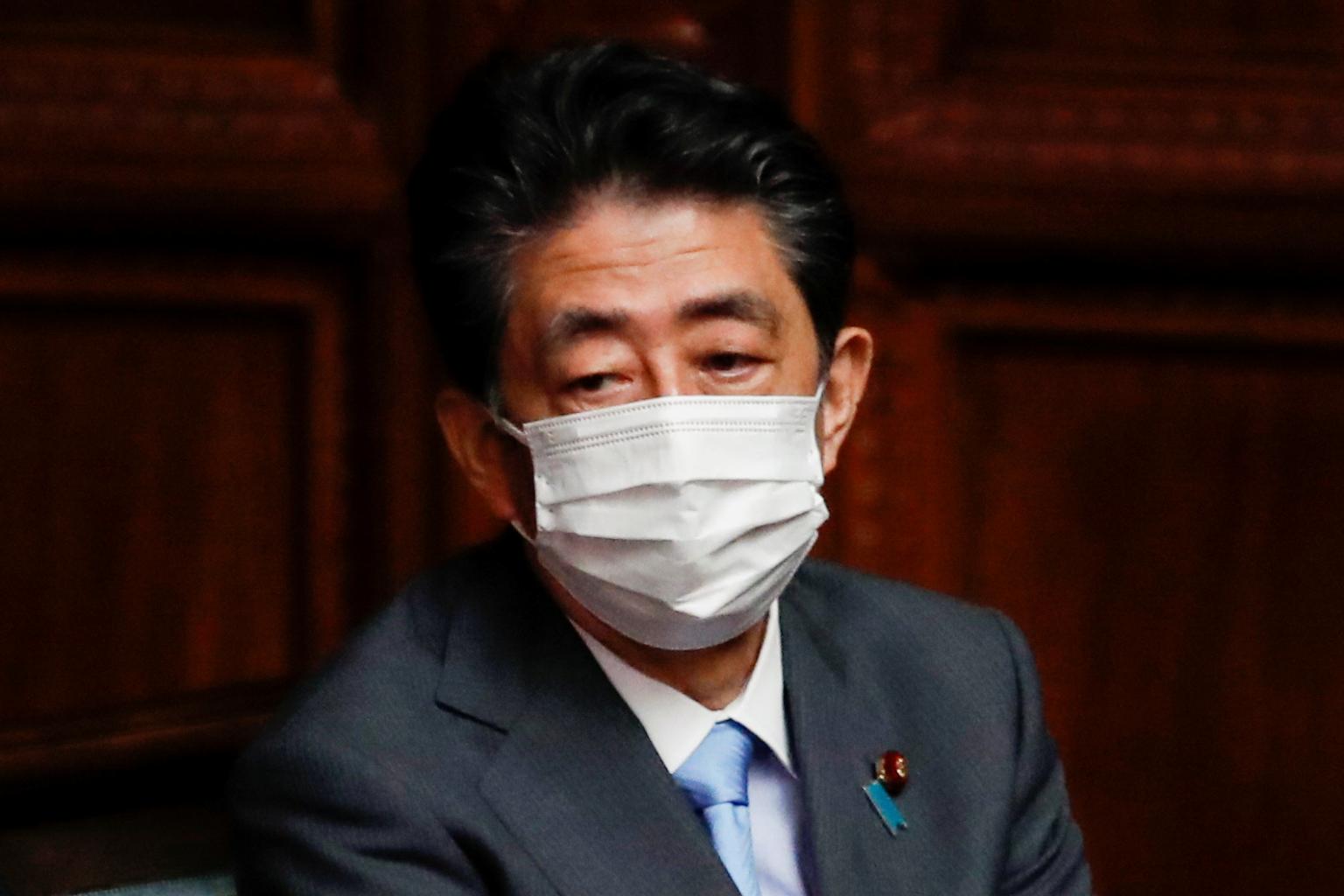Japan plans record extra defence spending with eye on China threat
Sign up now: Get ST's newsletters delivered to your inbox

Mr Shinzo Abe remains influential in Japan's ruling party.
PHOTO: REUTERS
Follow topic:
TOKYO (REUTERS) - Japan plans record defence spending in an extra budget expected to be announced along with an economic stimulus package on Friday (Nov 19), media reported, as former premier Shinzo Abe called for a "new level" of defence cooperation with ally Australia.
The developments come as Japan and Western allies including the United States, Britain and Australia respond to increased Chinese militarisation in Asia-Pacific.
Japan plans to allocate at least 770 billion yen (S$9.14 billion) for defence in a supplementary budget that will form a part of the economic stimulus package to be finalised on Friday, Kyodo News reported.
That amount - the most for defence in a supplementary budget - would dwarf the 430 billion yen earmarked in an extra budget in fiscal 2019, and would include outlays for missiles and patrol aircraft, and for strengthening defence capabilities near the southwestern islands, Kyodo said.
Japan has long committed to keeping its military budgets within 1 per cent of gross domestic product (GDP), a number that has eased concern at home and abroad about any revival of the militarism that led it into World War Two.
But with concern growing about China's military in the disputed East China Sea, the ruling Liberal Democratic Party (LDP) included a goal of spending 2 per cent of GDP or more on the military in its policy platform ahead of an election held on Oct 31.
Japan's defence ministry wants money for an indigenous stealth fighter and missiles that can travel more than 1,000km, among others, while the country is also building up cyber, space and electromagnetic warfare capabilities.
The developments come as Japan and Western allies including the United States, Britain and Australia respond to increased Chinese militarisation in Asia-Pacific.
Japan plans to allocate at least 770 billion yen (S$9.14 billion) for defence in a supplementary budget that will form a part of the economic stimulus package to be finalised on Friday, Kyodo News reported.
That amount - the most for defence in a supplementary budget - would dwarf the 430 billion yen earmarked in an extra budget in fiscal 2019, and would include outlays for missiles and patrol aircraft, and for strengthening defence capabilities near the southwestern islands, Kyodo said.
Japan has long committed to keeping its military budgets within 1 per cent of gross domestic product (GDP), a number that has eased concern at home and abroad about any revival of the militarism that led it into World War Two.
But with concern growing about China's military in the disputed East China Sea, the ruling Liberal Democratic Party (LDP) included a goal of spending 2 per cent of GDP or more on the military in its policy platform ahead of an election held on Oct 31.
Japan's defence ministry wants money for an indigenous stealth fighter and missiles that can travel more than 1,000km, among others, while the country is also building up cyber, space and electromagnetic warfare capabilities.
Former Japanese premier Shinzo Abe, who remains influential in the ruling party, said on Friday Japan should cooperate with the Aukus security partners the United States, Britain and Australia on artificial intelligence and cyber capabilities.
The Aukus pact, which was agreed in September and will see Australia acquiring technology to deploy nuclear-powered submarines, is widely seen as a response to Chinese militarisation in the region, particularly in the strategically important South China Sea.
Japan aims to strengthen ties with ally the United States and other friendly nations while bolstering its own defence posture, as it faces Chinese military expansion.
"A key to realising a free and open Indo-Pacific is ensuring like-minded countries' mid- to long-term engagement with the Indo-Pacific region. From this standpoint, I welcome the formation of Aukus," Mr Abe said in a speech at an online forum organised by an Australian think tank.
"It is extremely important to carry out multi-layered efforts to promote the peace and stability of the Indo-Pacific region. I believe Japan should engage in Aukus cooperation in such areas as cyber capabilities, artificial intelligence and quantum technologies."
British Prime Minister Boris Johnson has said that although the Aukus partnership will begin with nuclear-powered submarines, alliance members expect to accelerate the development of other advanced defence systems including in cyber, AI and quantum computing.
Japan forms the Quad grouping with India and two of the Aukus members - Australia and the United States. Quad leaders in September held their first in-person summit, which presented a united front amid shared concerns about China.
On Japan's ties with Australia, Mr Abe said the two countries need to deepen further their special strategic partnership.
"Given the regional security environment which has become increasingly severe, there is a need to elevate Japan-Australia bilateral security and defence cooperation to a new level."
Mr Abe, Japan's longest-serving prime minister, stepped down last year due to ill health, but stayed on as a lawmaker and this month took over as the head of the ruling Liberal Democratic Party's largest faction.

